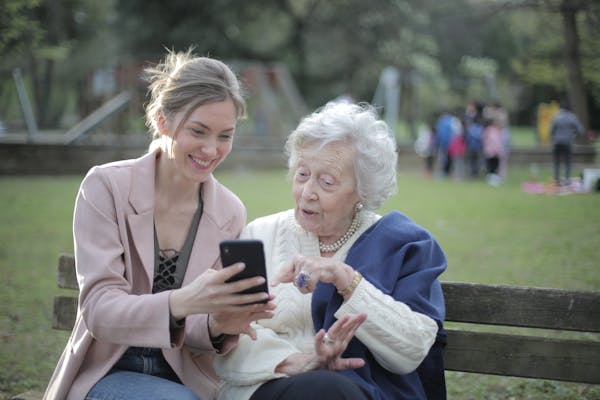As scammers continue to develop increasingly sophisticated tactics, elderly Australians are among the most vulnerable to falling victim. With an aging population and growing internet usage, scammers often target older Australians, exploiting their trust and unfamiliarity with digital security practices. In this article, we’ll discuss why elderly Australians are at higher risk, common scams that target them, and ways to protect our senior loved ones from financial harm.
Why Are Elderly Australians at Higher Risk?
There are several reasons elderly Australians face a heightened risk of being targeted by scams:
1. Trusting Nature
Many elderly individuals have grown up in a time when people were generally more trusting and less skeptical of strangers. Scammers exploit this trust by posing as friendly officials or well-meaning professionals, making it harder for seniors to detect deception.
2. Limited Familiarity with Technology
While many seniors are tech-savvy, others are still catching up with modern digital practices. They may not be as familiar with digital safety protocols, making them more susceptible to online scams, phishing emails, and fraudulent websites.
3. Social Isolation
Isolation and loneliness are common among elderly individuals, especially those living alone. Scammers target isolated seniors, particularly through romance scams or phone scams, by building a fake sense of companionship or support.
4. Financial Stability
Many elderly Australians have accumulated savings or pensions, making them attractive targets for financial scams. Scammers are aware of this and design schemes specifically aimed at accessing these funds.
Common Scams Targeting Elderly Australians
1. Phone Scams
Phone scams are widespread among elderly Australians. Scammers may impersonate representatives from government agencies, such as the Australian Tax Office, claiming that unpaid taxes or fines must be paid immediately. These calls often use threatening language to scare victims into sending money or disclosing personal information.
2. Romance and Companionship Scams
Loneliness can make elderly people vulnerable to romance scams. Scammers establish online relationships through social media or dating sites, building emotional connections over time. Eventually, they ask for money under false pretenses, such as medical expenses or travel costs.
3. Tech Support Scams
These scams involve scammers pretending to be from reputable tech companies like Telstra or Microsoft, claiming that the victim’s computer has a virus or security issue. They often pressure the individual to allow remote access or pay for unnecessary software, leading to financial losses and compromised personal information.
4. Investment and Pension Scams
Scammers often promise elderly Australians lucrative investment opportunities or claim to have insider knowledge on pension schemes. These fraudulent investments result in victims losing their hard-earned savings, with scammers disappearing once the money has been transferred.
5. Fake Charity Scams
Many seniors have a strong sense of community and are likely to support causes they believe in. Scammers exploit this by posing as charity organisations, soliciting donations that never reach their intended cause. This is especially common after natural disasters or during holiday seasons.
Protecting Elderly Australians from Scams
1. Encourage Open Communication
Make sure your loved ones know they can talk to you about suspicious calls, emails, or messages. Educate them about common scams and let them know it’s always okay to double-check with a trusted family member or friend before responding to unexpected requests.
2. Emphasise Caution with Personal Information
Remind elderly relatives to avoid sharing personal or financial information over the phone, through email, or on social media. Legitimate organisations rarely ask for sensitive information without verifying identity first.
3. Install Cybersecurity Software and Enable Security Features
Installing reputable antivirus software, enabling two-factor authentication, and keeping systems updated are essential steps in protecting against online scams. Offer to help set up these tools if your loved ones are not familiar with them.
4. Use Call-Blocking Features
Scammers frequently use phone calls to reach elderly Australians. Blocking suspicious or unknown numbers, or enabling call-blocking features on mobile phones, can reduce the risk of scam calls.
5. Report Suspected Scams
Encourage your loved ones to report any suspected scam attempts to Scamwatch or the Australian Cyber Security Centre. Reporting helps track scammers and prevents others from becoming victims.
The Importance of Awareness for Elderly Australians
Scams can have a significant emotional and financial impact on elderly victims. Beyond the monetary losses, there’s often a lasting sense of betrayal, guilt, and loss of trust. Raising awareness, encouraging open conversations, and offering support are crucial in helping elderly Australians protect themselves against scams.
Elderly Australians are particularly vulnerable to scams, but with the right awareness and preventative measures, families can protect their loved ones from these risks. By fostering open communication, providing education on common scams, and implementing security measures, we can help keep elderly Australians safe from financial fraud and emotional harm. Remember, vigilance and support from family members are some of the best defenses against scams targeting our senior loved ones.



